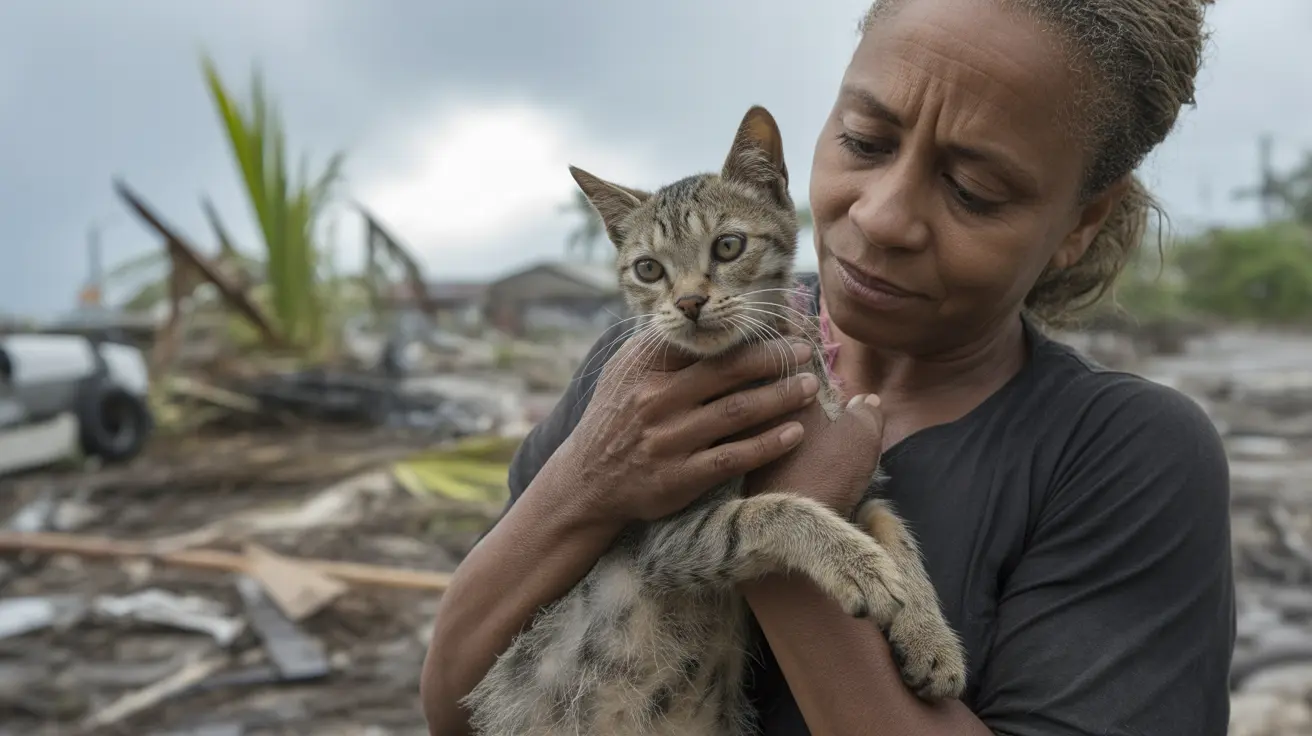In the aftermath of Hurricane Melissa's devastating impact on Jamaica, rescue teams and volunteers are finding reasons to celebrate amid the wreckage. The hurricane Melissa animal rescue efforts across the island have revealed heartwarming stories of survival, as creatures both great and small have weathered the storm alongside their human companions.
The resilience of Jamaica's animal population has become a beacon of hope for communities working to rebuild after the natural disaster. From household pets to livestock and wildlife, the survival of these animals offers comfort to rescue workers and residents alike, demonstrating nature's remarkable ability to endure even the most challenging circumstances.
The Scale of Jamaica Pet Rescue After Hurricane Operations
Hurricane Melissa brought significant challenges to Jamaica's animal population, affecting everything from family pets to farm animals and wildlife. Emergency response teams have been working tirelessly to locate, assess, and provide aid to animals throughout the affected regions.
The Jamaica animal shelters hurricane relief efforts have mobilized quickly, coordinating with local and international organizations to ensure no animal is left behind. These coordinated efforts highlight the importance of having established networks ready to respond when natural disasters strike.
Emergency Vet Care Jamaica Hurricane Response
Veterinary professionals across Jamaica have stepped up to provide critical emergency vet care Jamaica hurricane survivors need. Mobile veterinary units have been deployed to reach animals in remote or heavily damaged areas, providing essential medical treatment and health assessments.
Many animals have required immediate attention for injuries sustained during the hurricane, while others needed preventive care to avoid disease outbreaks that commonly follow natural disasters. The quick response of veterinary teams has been crucial in preventing secondary health crises among the animal population.
How to Help Animals After Natural Disaster Events
For those looking to support recovery efforts, there are several meaningful ways to contribute. Donations of pet food, medical supplies, and temporary shelter materials are always needed. Monetary donations to established rescue organizations often provide the most flexibility for addressing immediate needs.
Volunteers with animal handling experience are typically welcomed by rescue organizations, though coordination with established groups is essential to ensure safety and effectiveness. Those unable to volunteer in person can help by sharing information about lost or found animals through social media and community networks.
Pet Safety During Hurricane Jamaica: Lessons for the Future
The experiences from Hurricane Melissa underscore the importance of disaster preparedness for pet owners. Creating emergency kits with enough food, water, and medication for at least 72 hours can make the difference between life and death for beloved pets.
Identification is crucial – microchipping pets and keeping identification tags current ensures reunification is possible even when animals become separated from their families. Having a predetermined evacuation plan that includes pets removes the panic and confusion that often leads to animals being left behind.
Wildlife and Livestock Recovery Efforts
Beyond household pets, the hurricane affected Jamaica's wildlife and agricultural animals. Livestock rescue after hurricane operations have been particularly important for rural communities whose livelihoods depend on these animals.
Wildlife rehabilitation efforts focus on treating injured animals and ensuring they can return to their natural habitats once the environment has stabilized. These efforts contribute to maintaining Jamaica's rich biodiversity for future generations.
The Psychological Benefits of Animal Rescue Work
Rescue workers and volunteers consistently report that the psychological benefits of animal rescue work help them cope with the overwhelming nature of disaster response. Finding animals alive and healthy provides emotional relief and motivation to continue the difficult work of community recovery.
The bond between humans and animals proves particularly strong during times of crisis, offering mutual comfort and support that benefits both species. These connections remind communities of what they're working to rebuild and protect.
Frequently Asked Questions
How can I help rescue or support animals affected by Hurricane Melissa in Jamaica?
You can support recovery efforts by donating to established animal welfare organizations operating in Jamaica, volunteering your time if you have relevant experience, or providing supplies like pet food, blankets, and medical materials. Monetary donations often provide the most flexible support for immediate needs.
What should I do if I find an injured or abandoned pet after a hurricane in Jamaica?
Contact local animal rescue organizations or veterinary clinics immediately. If the animal appears injured, avoid handling unless you have experience, as frightened animals may bite. Document the location with photos and share information on social media to help reunite pets with their families.
Why is animal welfare important in disaster recovery, and how does it help communities rebuild?
Animal welfare is integral to community recovery because pets and livestock are often essential family members and economic resources. Caring for animals provides psychological comfort during trauma, maintains agricultural livelihoods, and demonstrates community resilience and compassion during difficult times.
Moving Forward with Hope
The Jamaica pet rescue after hurricane efforts demonstrate the power of community cooperation and the resilience of both humans and animals. As recovery continues, the survival stories emerging from Hurricane Melissa serve as powerful reminders that hope can be found even in the darkest moments.
These rescue efforts not only save individual animals but strengthen the bonds that hold communities together, proving that in times of crisis, caring for the most vulnerable – whether human or animal – reflects the best of human nature.






